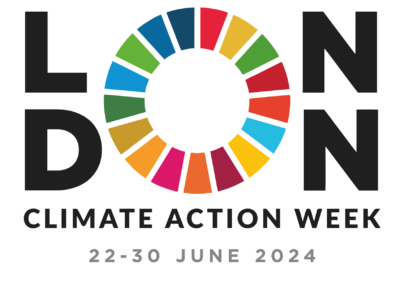Zulfia Abawe is a Lecturer in Global Business at the University of South Wales. In this blog, she discusses the importance of advancing gender inclusive climate solutions at COP28.
The 28th United Nations Framework Convention on Climate Change Conference of the Parties (COP28) is an unparalleled platform where global leaders unite to confront the dire challenges posed by climate change. Amidst the critical discussions revolving around strategies for mitigation and adaptation, a critical facet often sidelined is the significant role of gender and its intricate relationship within the discourse of climate change.
Climate change carries a distinct gendered aspect, mirroring the societal disparities entrenched between men and women across diverse domains. These disparities, spanning work, health, family dynamics, political participation, and more, significantly mould susceptibility to climate impacts, access to resources, attitudes toward risks, and involvement in policy processes. Across nations, women often confront disparities in education, economic opportunities, and political representation vis-à-vis men. They inhabit distinct societal and cultural spaces shaped by prevalent norms of masculinity and femininity that encompass values such as autonomy, strength, and control. These gender norms not only influence daily life but also amplify vulnerability to climate change, rendering women more susceptible. Moreover, the underrepresentation of women in crucial spheres such as scientific research agendas, recovery from climate-related disasters, and the formulation of mitigation and adaptation policies further exacerbates this vulnerability.
In the pursuit of a sustainable future, gender inclusivity emerges as an indispensable pillar in redefining climate policies and fostering resilient communities. Despite the commendable strides made in acknowledging the impact of climate change on vulnerable populations, the gendered dimensions of this global challenge warrant greater scrutiny. Research consistently underscores the disparities in climate change responses, accentuating women’s heightened awareness, concern, pro-environmental actions, and disproportionate vulnerability to climate change impacts. Particularly in developing nations, women bear the disproportionate brunt of climate change due to their reliance on threatened natural resources and marginalised socioeconomic positions. The stark impact of climate change costs on women underscores the imperative need for inclusive methodologies in addressing this issue. Studies analysing 4600 natural disasters across 141 countries between 1981–2002 revealed that disasters substantially reduced women’s life expectancy compared to men and had a more pronounced impact on women, influenced by their socioeconomic status relative to men. In countries where women enjoy more equitable social and economic rights, the disparity in life expectancy during or after disasters diminishes, highlighting the crucial role of gender equality in enhancing survival rates during crises.
Despite the urgent need for inclusive solutions and equitable participation to combat climate change, the pervasive dominance of masculine perspectives in decision-making processes remains a significant impediment. Gender inclusion in climate analysis is imperative, yet regrettably overlooked in policy discussions and decision-making forums. The predominantly male landscape of climate science, influenced by historically male-dominated institutions like the military, often skews policy responses toward privileged male cultural viewpoints and values, overlooking the diverse impacts of climate change on women, impoverished populations, or other vulnerable groups.
The urgent call for gender-inclusive approaches to climate change underscores the necessity of integrating gender perspectives into development policy and sustainable solutions. The argument for gender inclusion extends beyond vulnerability, emphasising its centrality to development policy, poverty alleviation, and the establishment of sustainable economies. The significance of gender analysis in climate change extends beyond human spheres alone, as evidenced by Kendra Coulter’s work, shedding light on the gendered implications of climate change for both human and animal life, underscoring the intricate interplay between social and environmental impacts.
As an advocate and educator in Global Business, my commitment lies in championing this pivotal movement. Attending COP28 transcends being a mere professional obligation; it presents an opportunity to collaborate, brainstorm, and chart pathways that mitigate the disproportionate impact of climate change on vulnerable communities, particularly women. COP28 signifies more than a platform—it acts as a catalyst for enriching research, shaping policies, and amplifying the impact of education. It embodies a commitment to catalyse a global movement toward a sustainable future.
My dedication to rectifying disparities finds its roots in my teaching philosophy. I aim to cultivate a sense of responsibility in future leaders, emphasising the transformative power of education in nurturing change agents committed to combating climate change.
The resounding message is crystal clear: Change commences with us. Together, through gender-inclusive approaches and unified action, we possess the capacity to architect a brighter, more sustainable tomorrow. Empowering change transcends being a choice; it stands as an imperative for fostering a thriving, equitable world where every individual, irrespective of gender, thrives and prospers.
Zulfia Abawe was awarded a Networking Scholarship to attend COP28, enabled by a partnership between the UK Universities Climate Network, the UK Embassy Science and Innovation Network in UAE and the Research England funded Centre for Postdoctoral Research in Infrastructure, Cities and Energy (C-DICE).


